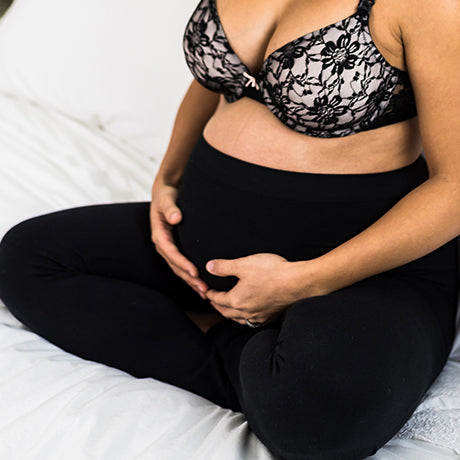A Healthy Vegan or Vegetarian Breastfeeding Diet
 After 40 or so weeks of a healthy pregnancy as a vegan or vegetarian, you’re probably eager to maintain this lifestyle habit while breastfeeding. And all research shows that you can as long as you continue to be watchful of the essential nutrients you and your baby need. After all, what you eat affects your breast milk and a healthy vegan or vegetarian breastfeeding diet is essential to your baby’s growth and development.
After 40 or so weeks of a healthy pregnancy as a vegan or vegetarian, you’re probably eager to maintain this lifestyle habit while breastfeeding. And all research shows that you can as long as you continue to be watchful of the essential nutrients you and your baby need. After all, what you eat affects your breast milk and a healthy vegan or vegetarian breastfeeding diet is essential to your baby’s growth and development.
Fortunately, you won’t need to change much from pregnancy when it comes to a healthy vegan or vegetarian breastfeeding diet. Many of the same fantastic nutrients that were supporting your baby in the womb will also support her as they transfer into your breast milk. These include protein, iron, calcium, vitamin D, Vitamin B12, folic acid and omega-3 fatty acids. Take a look here at our blog earlier this week for vegan and vegetarian options to get plenty of these nutrients.
However, there are few warning signs of nutrient deficiencies and additional nutrients to add to your vegan or vegetarian breastfeeding diet. Check them out:
Warning Signs of a Nutrient Deficiency
It’s true that vegans and vegetarians have a greater risk of nutrient deficiencies since their diets are more limited and cut out meat and potentially all animal sources of nutrients. That’s not to say that vegans and vegetarians can’t be extremely healthy and provide quality breast milk. With extra care and planning, new moms can offer their babies all the nutrition necessary.
A few words of caution:
Vegans and vegetarians may eat a large quantity of plant-based of food but much of it may be low in calories. Breastfeeding moms actually need up to 500 more calories a day than non-lactating women so being low on calories due to your diet is only exacerbated when breastfeeding. The body will then start to burn protein for energy, which deprives your baby of this important nutrient.
Although rare, Vitamin B12 deficiency is the most common among vegan breastfed babies. That’s because Vitamin B12 is only found naturally through animal sources. Additionally, the deficiency may begin in early infancy, between 2 and 6 months, but symptoms – such as anemia, hypotonia, developmental delays, vomiting, and lethargy – may not appear until after 6 months.
Although folic acid and iron are often consumed from animal products, there are more plant-based food options for them and therefore deficiencies in these nutrients are less common.
Vitamin D deficiencies are also rare but they can occur, especially in the wintertime among families who live in areas with little direct sunlight. While some Vitamin D comes from food, the major source is ultraviolet rays. Pediatricians often suggest babies take a Vitamin D supplement to avoid deficiency, which could impact calcium and phosphorus absorption.
Other Nutrients Required in a Healthy Vegan or Vegetarian Breastfeeding Diet
Many new moms don’t realize the importance of zinc in a healthy vegan or vegetarian breastfeeding diet. And unfortunately there are not many plant-based foods that contain zinc. Zinc is necessary for every bodily function because it’s found in every organ, tissue and body fluid. It’s important for growth, immune health and appetite, among other things.
You need more zinc while breastfeeding because your baby is absorbing much of your intake through breast milk. Here’s a bonus: zinc reduces risk of postpartum depression and may prevent cracked nipples.
Good sources of zinc for vegans and vegetarians are pumpkin seeds, wheat germ, sesame seeds, sesame oil and whole grains.
Another nutritional category that can trip up new moms is carbohydrates. It’s tempting to go low carb after pregnancy to try to drop those extra pounds. But carb-cutting during breastfeeding, especially the early stages, can affect the quality of your breast milk and restrict your calories which depletes your energy. Trust us, you’ll need all the energy you can get while nursing and caring for an infant!
Rather than cutting carbs, make wise choices about the carbohydrates you eat. Go with whole grains and complex carbs whenever possible and avoid sugary snacks and desserts. Your body will enjoy these wholesome nutrients and so will your baby.
Sources: La Leche League, Inhabitots, Breastfeeding Basics and Kelly Mom
The post A Healthy Vegan or Vegetarian Breastfeeding Diet appeared first on Leading Lady.





